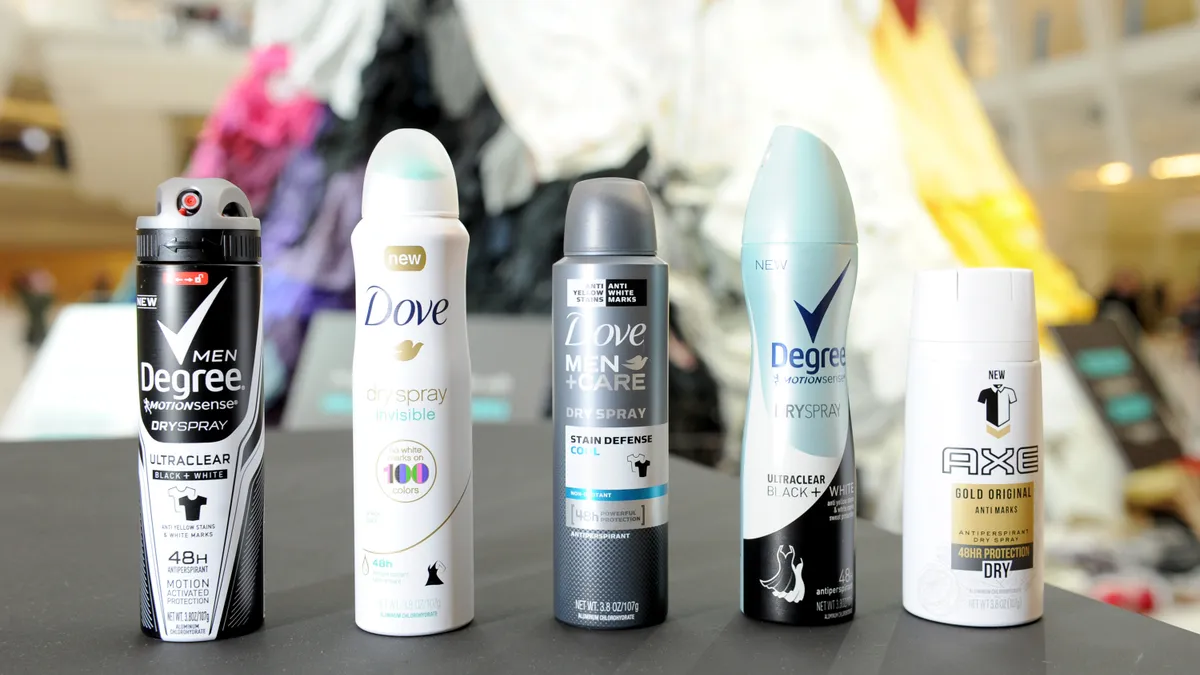Dive Brief:
- Unilever plans to water down some of its sustainability pledges focused on plastics usage and diversity pay, the company’s CEO Hein Schumacher told Bloomberg last week.
- The consumer goods company is walking back its previous commitment to slash its use of virgin plastics by 50% by 2025 — the updated target now focuses on a 30% reduction by 2026. The difference between the two goals equals over 100,000 tons of fresh plastic annually, per Bloomberg.
- The company also eliminated a pledge to spend 2 billion euros ($2.1 billion) annually on diverse businesses across the world by 2025, as well as a commitment for 5% of its workforce to be made up of people with disabilities by the same year.
Dive Insight:
The report also unveiled Unilever plans to axe pledges related to food sourcing and food waste. Dropped pledges include the company's commitment to use 100% biodegradable ingredients by 2030 and cut food waste generated by its operations by half by 2025.
The London-based multinational manufacturer — which supplies products catering to nutrition, hygiene, personal care and more — is also abandoning a promise to pay its direct suppliers a living wage or income by the end of the decade. The company’s updated goal now only offers fair pay to suppliers that account for half of its procurement spend by 2026, per the report.
Schumacher told Bloomberg that focus on ESG issues was “cyclical,” noting that the attention on climate is elevated when a company experiences a “huge drought for a number of months but everything else is going fine.”
“These days it’s about wars and rightly so, that’s at the forefront,” he added.
The CEO said he is focusing on commitments which will “stand up to scrutiny under increasingly granular regulatory requirements.”
The company still has goals in place regarding its carbon emissions such as reducing scope 1 and scope 2 emissions by 100% by 2030, compared to a 2015 baseline, and decreasing scope 3 emissions by 42% by 2030, compared to a 2021 baseline — both announced in its latest climate transition plan published last month. However, the backtrack on certain environmental and social goals marks a major shift for a company that has built its strategy on climate-related goals for the better half of the past decade.
Unilever’s retraction comes in the wake of increasing backlash from shareholders, investors and politicians for companies to prioritize financial objectives over non-financial ones, reduce costs and improve stock market performance. Last week, Nestlé — one of Unilever’s biggest competitors — voted against a proposal which asked the company to change its portfolio strategy by cutting its reliance on less healthy foods to “dramatically improve” its impact on public health.
The proposal, put forward by responsible investment NGO ShareAction, also asked Nestlé to set targets to increase the proportion of its sales derived from healthier products — a suggestion the Swiss multinational said it disagreed with as it required the company to dilute other parts of its portfolio. Nestlé said that this, in turn, would create opportunities for competitors without necessarily promising any public health benefits. Eighty-eight percent of shareholders rejected the proposal.











